Finding the right approach that works for your acne can be hard with a lot of hit or misses. You’ve tried almost every thing you've heard of to relieve acne yet you still can’t see the results you're looking for and are hitting the last straw. But don't worry, here's a webinar guide to help you explore difference causes of acne that you may not know about. From digestion, gut health, diet, and medications.
Leaky Gut and Acne featuring Brian Turner
How to Cure Acne Naturally from the Inside Out
We all get frustrated at some point in our lives when it comes to finding the root cause of our acne as well as the right approach to healing it. It’s not a “one size fits all” type of approach wherein we try everyone else’s approach to healing their acne and expecting it to work on us, too. We all have our different ways or approaches to healing acne.
When it comes to skin care, it’s not just all about the topical treatments that you apply on your skin. There are also other ways to help your skin control those breakouts from happening such as:
- Gut Health
- Medication
- Diet
Gut Health
Acne and gut health have a relationship with one another. To undestand how gut health and acne are related, first learn what a leaky gut syndrome is and how you can heal acne by improving your gut health, what foods to avoid and what foods you can eat.
We all want to improve our acne, who doesn’t? There are a lot of ways we can improve our acne by starting with our gut health. When we have a leaky gut, our skin’s health is also affected, hence we suffer from an acne that’s caused by what we call leaky gut syndrome. A leaky gut signifies that there is an inflammation within our gastrointestinal tract. A leaky gut syndrome is a type of digestive condition wherein the intestinal wall or lining becomes damaged and widened, allowing foreign invaders like bacteria or toxins to pass through the bloodstream.
Digestion And Acne Featuring Nutritionist Dani
Symptoms of leaky gut include
- bloating
- food sensitivity or allergies (gluten, dairy, etc.)
- fatigue
- digestive issues
- heartburn
- acne
If you are the type of person who suffers from bloating and food sensitivities along with acne, then you might be experiencing leaky gut. Believe it or not, your diet also affects your skin’s health, with your leaky gut becoming a cause of acne . Our gut health plays a role in our skin’s health and healing from acne. When you have leaky gut, food that’s not completely digested enters your bloodstream, and these extra sensitivities can leading to more acne breakouts.
There is another condition called dysbiosis which occurs when the bad bacteria overtakes the good bacteria in our gut.
You can heal your acne by fixing your leaky gut first through picking foods that are rich in probiotics or foods that are fermented like kimchi, sauerkraut and kombucha as well as cutting off or limiting any food that has refined carbohydrates or those that are processed.
Take note of what you eat and avoid foods that could cause more inflammation in the gut such as spicy foods, caffeine, or highly acidic foods.
Medications
We all have tried taking prescription medications for treating our acne such as antibiotics and Accutane. But what we don’t know is when we should use or take these medications to treat or heal our acne.
Antibiotics
Antibiotics and Acne ft. Liz Claire
For moderate acne, you may need oral antibiotics to reduce bacteria and antibiotics should always be used along a probiotic. Usually the first choice for treating acne is a tetracycline (minocycline, doxycycline) or a macrolide (erythromycin, azithromycin). 3 There is a Warning that Oral antibiotics should be used for the shortest time possible to prevent antibiotic resistance. And they should be combined with other drugs, such as benzoyl peroxide, to reduce the risk of developing antibiotic resistance. If acne is not caused by bacteria, then antibiotics will not work and more courses should not be repeated.
In dermatology, clinicians limit the use of antibiotics for acne, said Dr Keri. Single therapy is not recommended, treatment should be limited to 3 months, and benzoyl peroxide should be used in combination to prevent resistance.
If you do try antibiotics to cure acne, make sure you take a good quality probiotics strain during your course, and after to replenish the gut flora.
Accutane
What you need to know about Accutane featuring Kali
When treating acne, Accutane should be taken as our last resort – when everything we tried (from diet to using skin care products) doesn’t seem to work.
What is Accutane? 4 Accutane is a naturally occurring derivative of Vitamin A and is detectable in the bloodstream. Vitamin A in large doses has the same effects as Accutane, both good and bad, but quickly becomes harmful since it builds up in the body.
Taking Accutane with food increases the absorption of the medicine. The more Accutane one takes, the greater the chance of acne being resolved without relapse. Unfortunately, side effects depend on the dose as well.
What other medications treat acne?
Acne medications work by reducing oil production and swelling or by treating bacterial infection. With most prescription acne drugs, you may not see results until at least 4 or eight weeks. It can take many months or sometimes years for your acne to clear up completely.
There are a variety of topical and oral medications that your dermatologist would prescribe for treating your acne, such as other forms of topical vitamin A like tretinoin gel or cream, adapalene gel, or dapsone cream depending on the severity and type of acne you have.
There’s no one-size-fits all solution to treating acne and not everyone’s approach would work the same as yours. You may want to combine traditional medications with factors like gut health and diet in the next section to get to the core cause of acne.
Diet Affecting Acne
Again, our diet plays a vital role in treating our acne and improving its appearance. Research has shown that low-glycemic, high-protein foods play a significant role in improving acne. So, start with a clean, wholesome foundation, like a diet rich in colorful fruits and vegetables!
Following a nutrient-dense, anti-inflammatory diet is one of the best ways to treat and prevent acne naturally. Given that inflammation causes acne, choosing foods that reduce inflammation is crucial.
In terms of what causes inflammation, it can be different for each person. For example someone may have no inflammatory response to onions, while others cannot digest and tolerate them or other strong spices well. It's important to keep track of how you feel after eating different foods.
To treat acne using diet, it’s best to pick foods that have low glycemic index (not saying that you can’t eat them anymore – just limit the intake).
Another common food that may affect acne for most people is dairy milk. Milk proteins can also exacerbate acne because it increases the hormone IGF-1 which speeds sebum production. People who use a lot of whey protein may also experience this since it contains the same proteins that would increase IGF-1 hormones.
So, these are just some of the tips or ways on how you can heal acne from within: fix your gut health - it may take a lot of tests to rule out different gut issues, don’t take antibiotics or other medications unnecessarily or unless it’s prescribed by your dermatologist and pick unprocessed foods as often as you can.

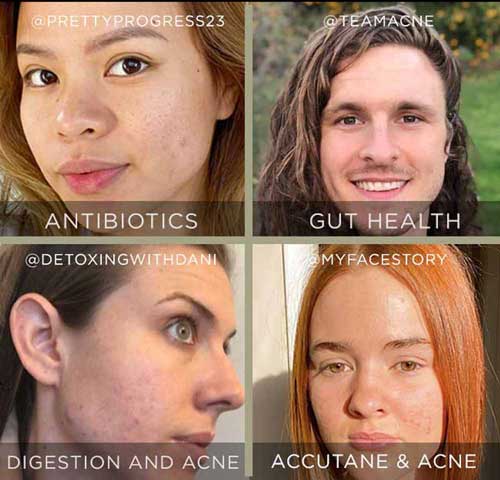
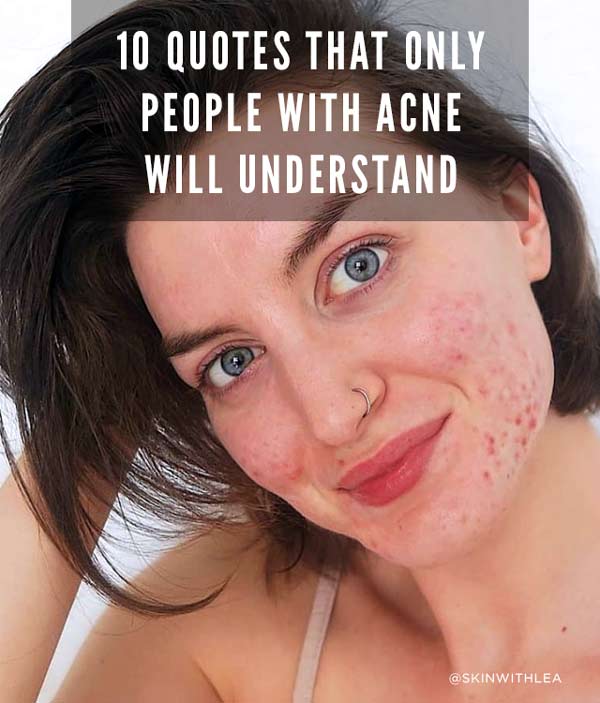
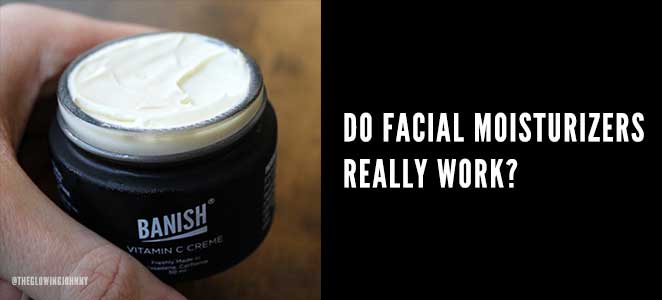










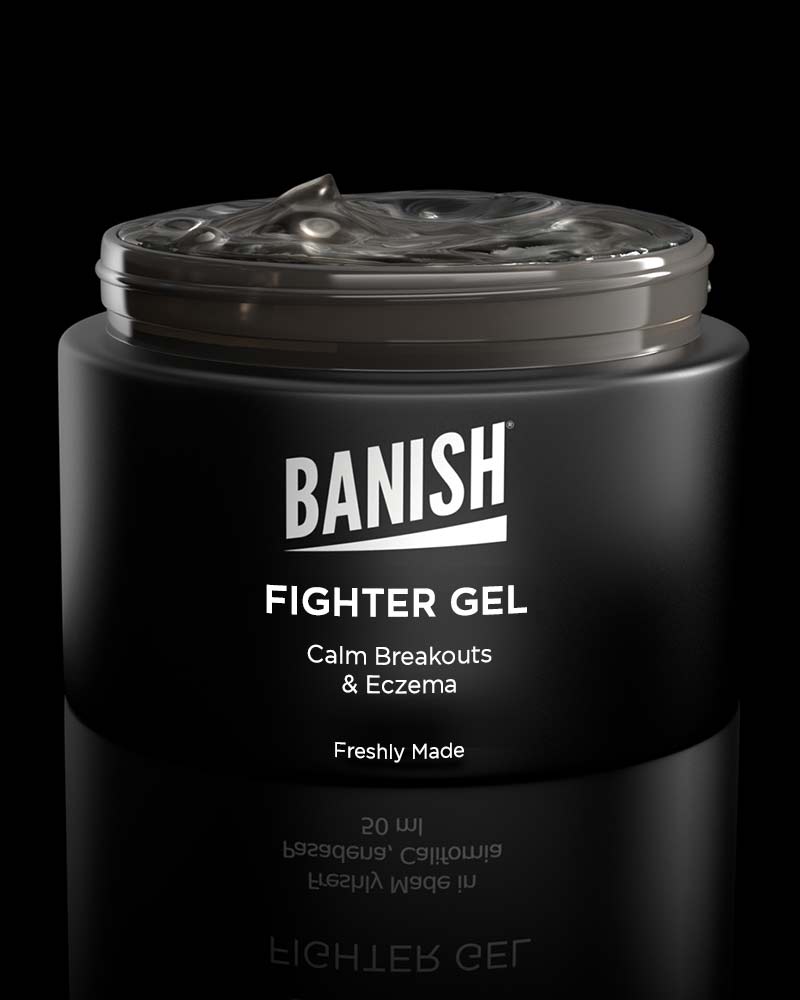
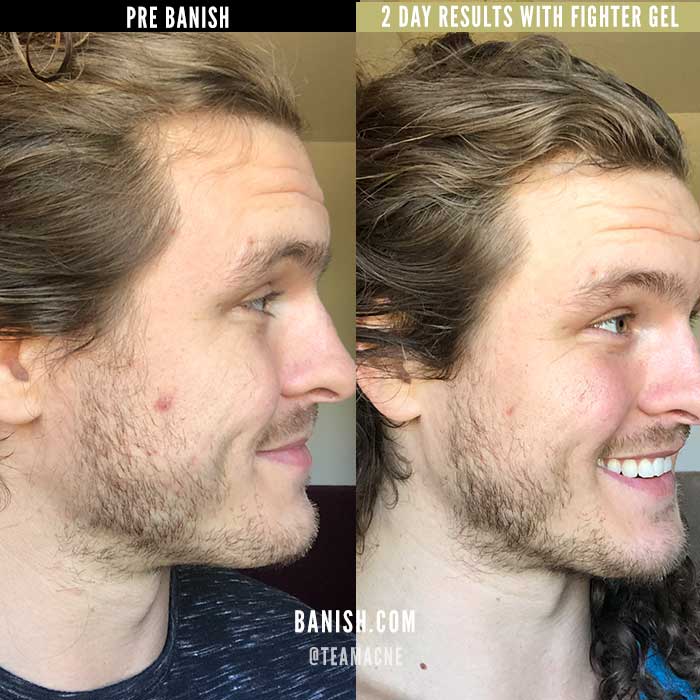










Leave a comment
All comments are moderated before being published.
This site is protected by hCaptcha and the hCaptcha Privacy Policy and Terms of Service apply.